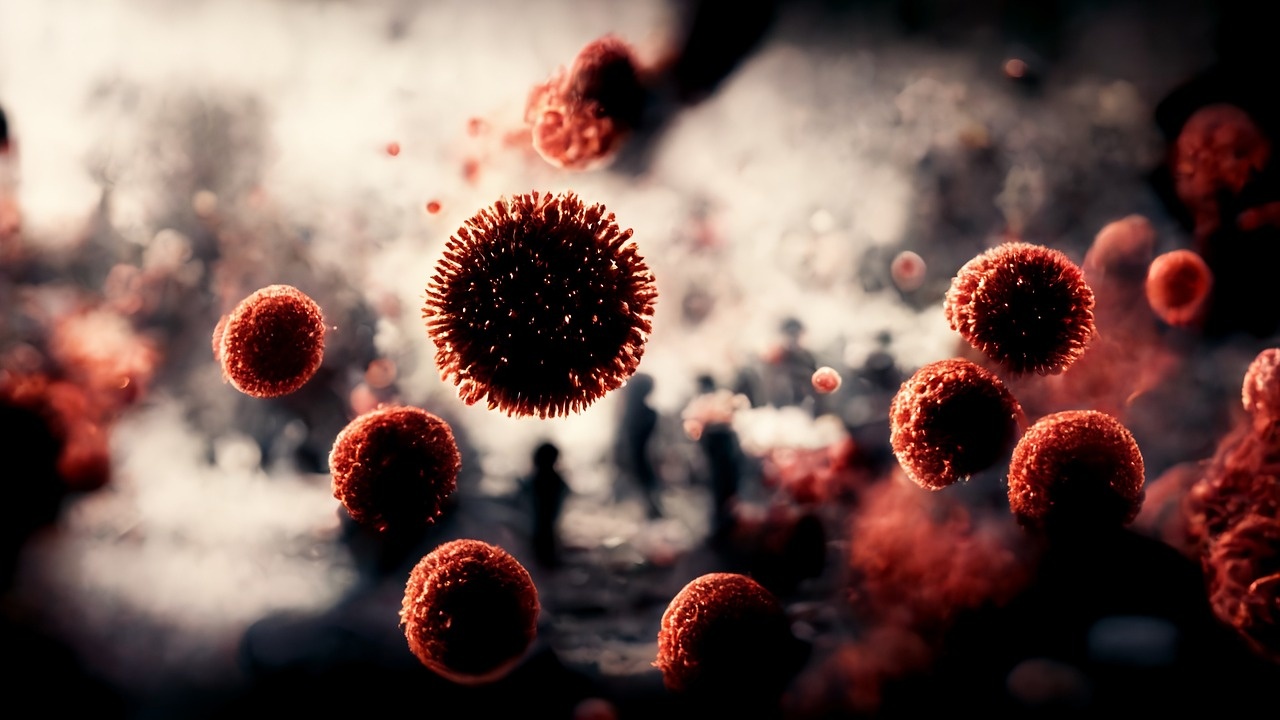On Monday, the executive director of the Global Alliance for Vaccines and Immunization (GAVI), Seth Berkeley, said it was too soon to end the pandemic emergency declared over the coronavirus and warned that there was still a risk of things getting worse.
The alliance, which is a body of the World Health Organization (WHO), meets every few months to assess whether the coronavirus, which emerged three years ago in the Chinese city of Wuhan, still constitutes "a public health emergency of international concern." ".
In response to a journalist's question about whether the WHO will declare an end to the emergency at next month's emergency meeting, GAVI's executive director said things could get worse.
"I guess you know that Dr. Tedros [WHO Director-General Tedros Adhanom Ghebreyesus] thinks about the global situation that could get worse. But it could also get better. We don't know where it's going. It seems like the moment is too difficult , to end the state of emergency," Berkeley added.
However, it seems that there is hope that next year, COVID-19 will no longer create a global emergency, since then the most dangerous phase of the disease will be over, the WHO said on Thursday, BTA reports.
WHO hopes Covid-19 and monkeypox will no longer be global health emergencies
A week after China began loosening its strict policy to achieve "zero COVID", the WHO warned of "very difficult" times ahead and state media in the Celestial Empire reported some seriously ill patients in hospitals in Beijing, raising fears of a new a wave of infections.
The lifting of the draconian measures came in the wake of the need to align with global trends and after historic protests against mass lockdowns that have kept the virus under control but fueled tensions among millions of people.
The enthusiasm with which these changes were greeted quickly faded amid growing signs that China may be paying the price for protecting a population that lacks "herd immunity" and has low vaccination rates among the elderly.
As of Dec. 13, 92.73 percent of people had received the COVID-19 vaccine, and 90.37 percent of the population in China had received a full course of vaccination, Xia Gan, the National Health Commission official in charge of immunization services, told a briefing.
As a preventive measure, with a view to lifting the "zero COVID" restrictions, China has opened 14,000 wards in major hospitals and 33,000 in municipal hospitals to treat patients with high fever since Dec. 14, senior official Jiao Yahui said at a media briefing. in the National Health Commission.
Against this background, it is worth noting that in the three years since the start of the pandemic, China has reported only 5,235 deaths related to COVID-19, which is extremely small compared to the number of fatal cases of the disease worldwide.
That the pandemic is not over has been shown in the past week by the plans of a number of governments to stock up on antiviral treatment.
The US government will pay Pfizer nearly $2 billion for additional doses of Paxlovid.
The new purchase adds to the 20 million treatment courses previously purchased by the US, and delivery is planned by early 2023, Pfizer said in a statement.
It is worth remembering that the coronavirus has killed more than 1,080,000 Americans since it appeared in the United States in early 2020.
American households will get more free covid tests this winter
The maker of Paxlovid also said it is working to improve supplies of its antiviral drug in China to ensure adequate access to the drug as cases in the country increase.
On Tuesday, Japanese pharmaceutical company Shionogi said the government in Tokyo had agreed to buy an additional 1 million doses of an oral treatment for COVID-19.
Before that, the company sold one million doses of the drug "Xokova" to the government.
The additional supply agreement comes at a time when Japan is in its eighth wave of COVID infections.
Xokova is an oral antiviral that is taken once a day for five days to suppress virus replication.
Meanwhile, authorities in the northern Mexican state of Nuevo Leon on Monday reinstated the mandatory use of masks in indoor public places in an effort to reduce the rising number of COVID-19 infections as well as the spread of other respiratory diseases.
At the GAVI briefing mentioned above, Seth Berkeley added: "We are done with the virus, but the virus is not done with us."
GAVI's executive director indicated that he expects demand for COVID-19 vaccines to remain strong into 2023. "We expect hundreds and hundreds of millions of doses to be requested. That's what countries say they want," he said.
China stops reporting asymptomatic COVID-19 cases
The WHO reported on Thursday that 30 billion doses of the COVID-19 vaccine had been administered worldwide, yet 30 percent of the population had not received a single dose.
Nearly 650 million cases of infection with the coronavirus have been registered since the beginning of the global pandemic, and the deaths are over 6.6 million.
At the moment, according to WHO data, since the beginning of the pandemic, 646,266,987 cases of infection with COVID-19 have been registered worldwide (in Europe, the cases are 267,499,816) and over 6.5 million victims.
